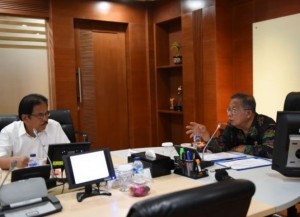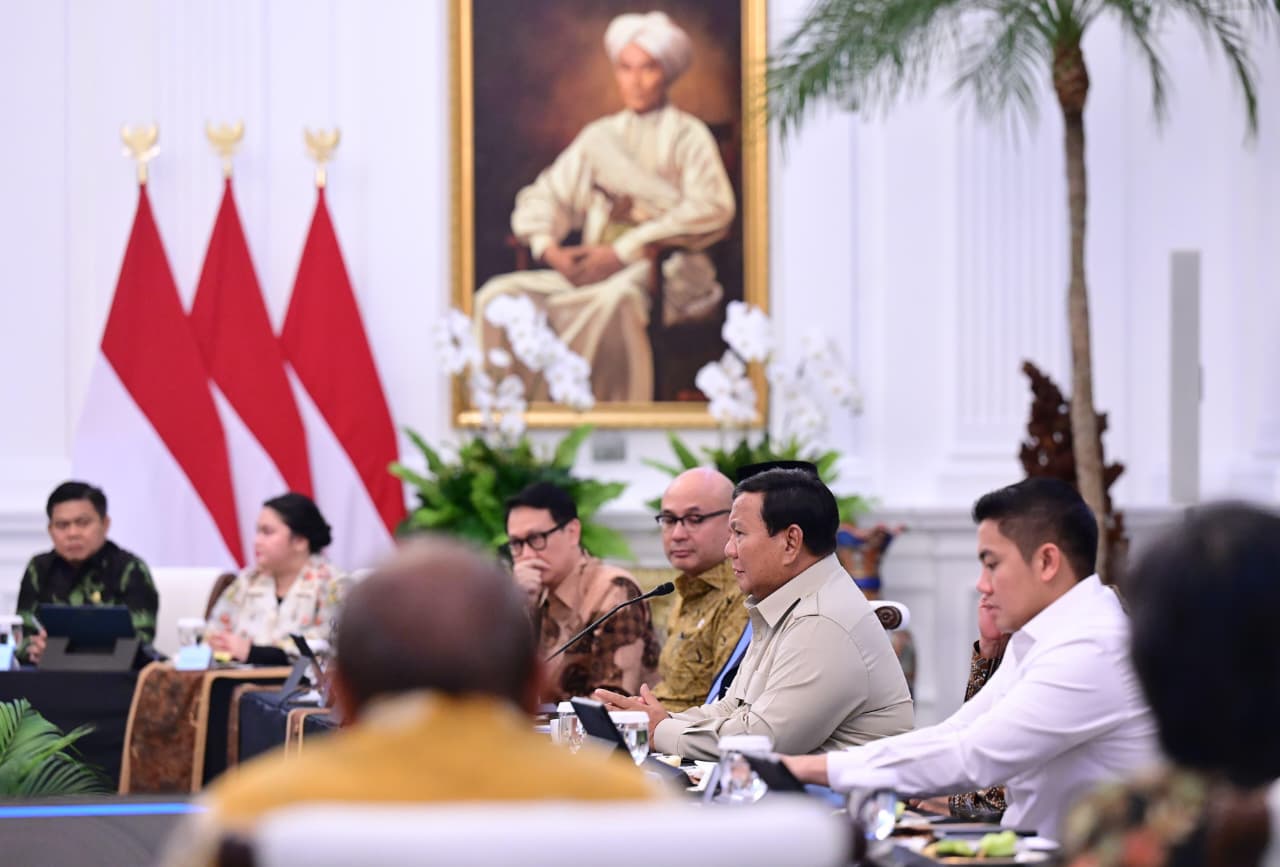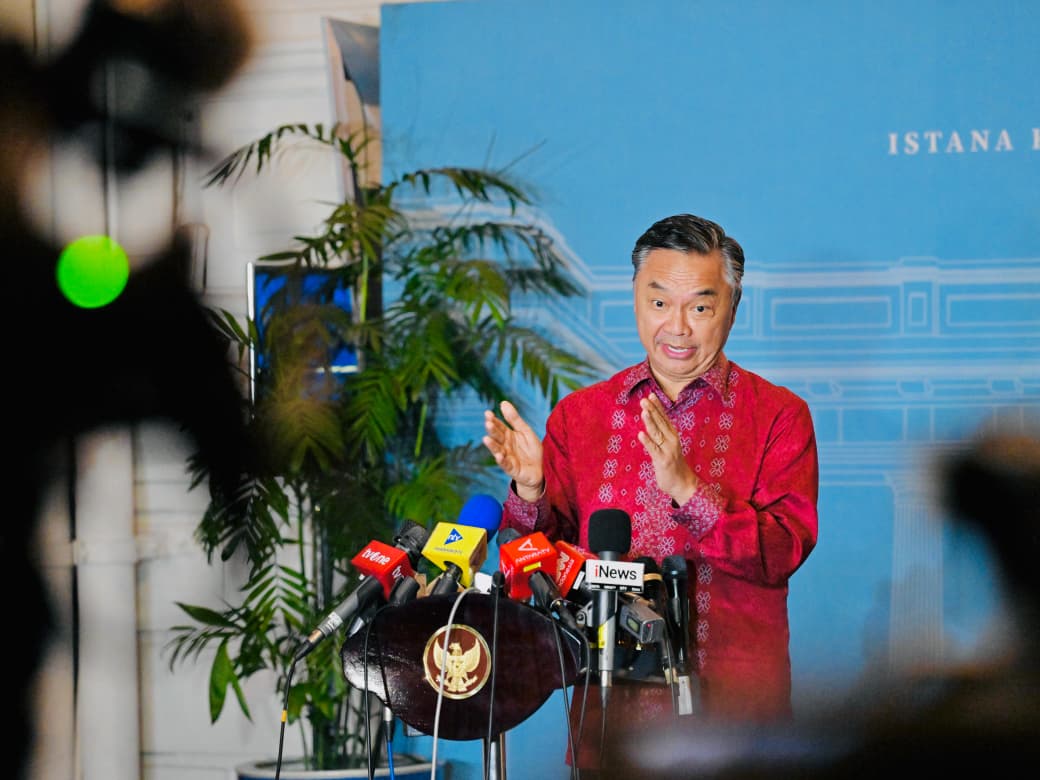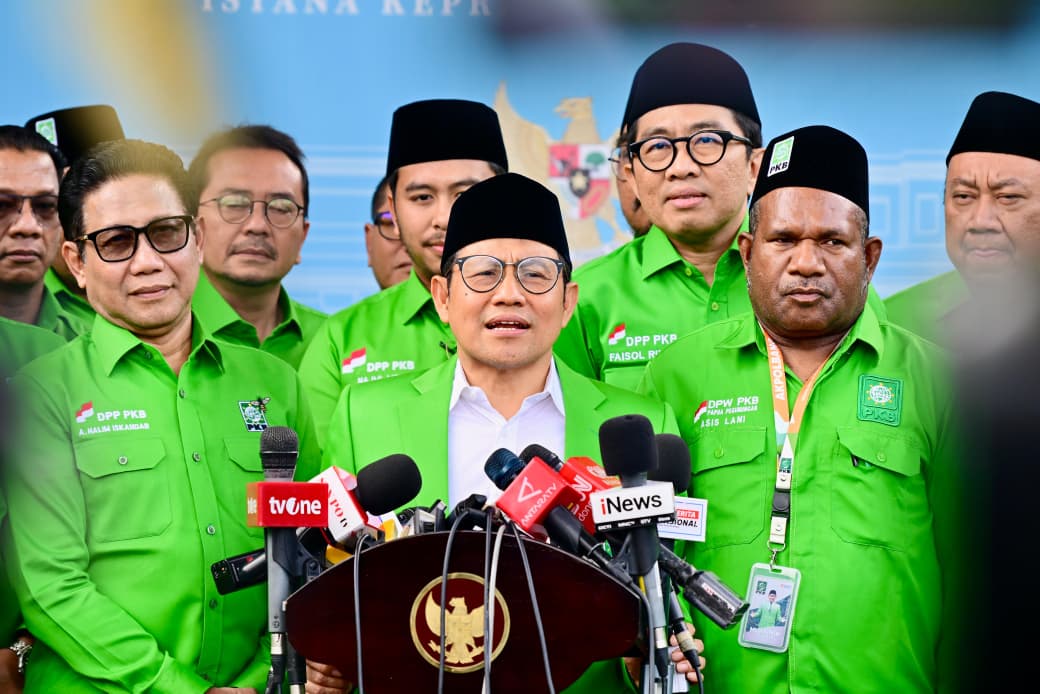Govt to Remove CPO Export Tariff

Coordinating Minister for the Economy and Minister of Agrarian and Spatial Planning/Head of the National Land Agency (BPN) at the BPDP-KS meeting in Jakarta, Monday (26/11). Photo by: PR of Coordinating Ministry for the Economy
The Indonesian Government has decided to remove export tariff for Crude Palm Oil (CPO) and its derivatives if the market price does not exceed US$ 500/ton.
The decision was made at the Steering Committee Meeting of the Palm Oil Plantation Fund Management Agency (BPDP-KS) in Jakarta, Monday (26/11).
Coordinating Minister for the Economy Darmin Nasution said that the adjustment is the Government’s response to the declining price of CPO in the world market, which reaches US$ 410/ton, from US$ 530 US dollars/ton several days ago.
“The current situation requires an emergency measure to support farmers. The adjustments of the export tariff will be applied temporarily,” Darmin said after the BPDP-KS meeting.
For the record, the existing tariff for CPO export is US$ 50/ton, while the tariff of 1st derivative products and 2nd derivative product are US$ 30/ton and US$ 20/ton respectively. With this adjustment, the Government imposes a fee of Rp.0 for the three types of export commodities.
If prices have started to improve to the level of US$ 550/ton, the export tariff will be re-imposed, Darmin said.
He added that the public does not need to worry about the new policy and BPDP-KS has sufficient funds to implement other programs related to palm oil. “The Biodisesel-20 Program (B-20), People’s Oil Palm Rejuvenation (PSR), and other programs will run normally, he said.
Darmin further said that the implementation of the policy will be further regulated in Regulation of Minister of Finance. “Minister of Finance will sign the policy after returning from Argentina. This policy will take effect after the promulgation of the regulation,” Darmin said.
In the meantime, Minister of Agrarian and Spatial Planning/Head of the National Land Agency (BPN) Sofyan Djalil said that the policy was made due to emergency conditions. According to him, the Government must intervene the market to control supply side and serve the interests of farmers and industry.
“The BPDP-KS is a public policy instrument whose directors are several ministers. Without this instrument, it will be very difficult for us to respond to the current conditions,” Sofyan said.
The meeting also agreed on the need to strengthen data collection from all plantations, including community plantations and large oil palm plantations. The data collection is part of plantation management in Indonesia and will be carried out in conjunction with the Program for Settling Land Tenure in Forest Areas (PPTKH) and the Palm Oil Moratorium Program.
Also present at the meeting were Director General of Customs of Ministry of Finance Heru Pambudi, Director General of Treasury of Ministry of Finance Marwanto Harjowiryono, Director General of Plantation of Ministry of Agriculture Bambang and other high ranking officials. (Humas Kemenko Perekonomian/ES)
Translated by: Ridwan Ibadurrohman
Edited by: Ersan Pamungkas








